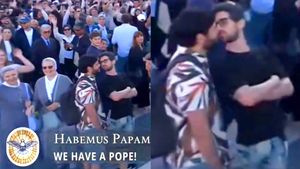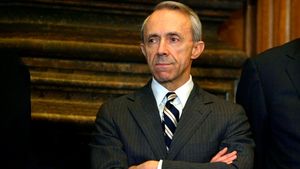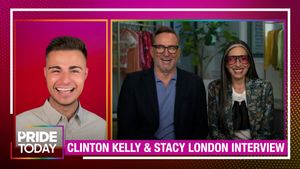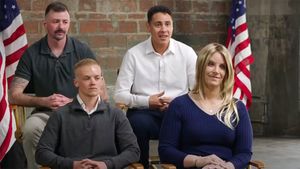Mitch Zachary has sipped from millions of coffee cups. For the African-American and Dominican photographer, it comes with the territory of shooting a seemingly endless stream of portraits as he travels from New York to Berlin -- and everywhere in between.
After setting a goal to take at least a photo a day to maintain his photographic focus, Zachary settled into a pattern of coffee dates, museum hangouts, and the occasional DM to subjects he was interested in shooting in whatever city he happened to be in at the time. "It was a bit weird because they were almost these sorts of dates," he says. "We're really getting to know each other and there's this expectation of everything going well. It was sort of nice to do this a million times with different people because it was almost like training to date."
Related | Mitch Zachary's Beautiful & Candid Portraits of Youth Around the World
From his hundreds of "go-sees" and interactions, the photographer hasn't just collected the stories of the young people who he trains his lens on -- he's also been able to practice activism his way. It's no secret that in an industry focused so often on beauty, black and brown people are often overlooked.
As Zachary explains, "This industry likes to segregate people. If you're, for example, a black person and not shooting queer black men, it's invalid." It's a sharp point that he's working to expose and subvert. Born to a Spanish Dominican mother and black father, Zachary emigrated from the Dominican Republic as a kid and found himself in a limbo of being "not quite Dominican or quite black or quite Spanish enough." It's through photography that his multifaceted identity has allowed him to create an artistic style that's both observational and authentic to the lives he's documenting -- in whatever city they may be in.
While he took a break running to yet another coffee and portrait session, we caught up with Zachary to talk about the cultural differences between cities, skate camps, and nuanced, authentic storytelling.

Marius in Paris by Mitch Zachary.
OUT: You photograph people all over Europe and in New York, as well. Do you have a favorite city for meeting people?
Mitch Zachary: Berlin because people are a little more open to connecting on a personal level. Doing shoots in New York, especially with models, it feels a little dry. After going to Berlin and seeing the huge cultural difference, I was able to put myself out there as well and be more open with these shoots -- everything started to evolve a little bit more organically after that.
It's nice to look through your photos and see a diverse range of people represented.
As a black photographer, I've been told by people in the gay community that if I'm not shooting people in huts or in the jungle, it's not authentic or I'm not allowed to have a commentary. I hate to be political but at times, this industry likes to segregate people. If you're, for example, a black person and not shooting queer black men, it's invalid. I disagree with that because storytelling is about perspective and nuance and diversity.
In my work, I try to be a little bit more subversive in the way I do activism. I try to tell a more authentic story of what's going on around me rather than me sitting at home creating a casting so I can shoot the top fifteen queer black men in New York just to call it something.

Josh in New York by Mitch Zachary
I feel that that happens a lot. People tend to tout diversity just for diversity points and not for legitimate reasons.
Right. Being biracial with a Spanish mom and emigrating from the Dominican Republic as a kid, I'm in this limbo where I'm not quite Dominican or quite black or quite Spanish enough. With my work, I try to find all of the pieces that I am from all of these cross-sections and, at the same time, try to be observational.
Why did you start the series initially?
The pretext of the series came from me shooting every day to keep myself going. It started as an effort to create more go-sees as light studies or working on different angles. Just trying to keep my knife sharpened. It ended up becoming a collection of stories from all the people I've met and ninety percent of the people in the series are not models.

Ludvig in Copenhagen by Mitch Zachary.
How did you find these guys?
A lot of social media. There are some kids in there I met on the street. Especially in Berlin where you can just be at a spati drinking a beer sitting outside and you see someone and you're like, 'Oh my god you're gorgeous let's shoot.' A lot of the time, it ended up coming down to just asking if they're available to grab a coffee.
It was a bit weird because they were almost these sorts of dates. We're really getting to know each other and there's this expectation of everything going well. It was sort of nice to do this a million times with different people because it was almost like training to date.
How has your experience been with meeting so many new people through this series?
It's been so rewarding for me to take myself out of my box and my comfort zone. I embed myself in these situations almost as if I'm a war photographer. It's interesting to see how the other side lives. I just went to Paris and embedded myself in this skate camp for five days and nobody spoke a lot of English and I certainly didn't speak any French, but the photos turned out amazing because I took myself out of my universe and plugged myself into this world. Being able to be a fly on the wall gives these images a sense of reality you can't fake.

Malo, Abel, Mitch Zachary, and Maceo in Paris.












































































